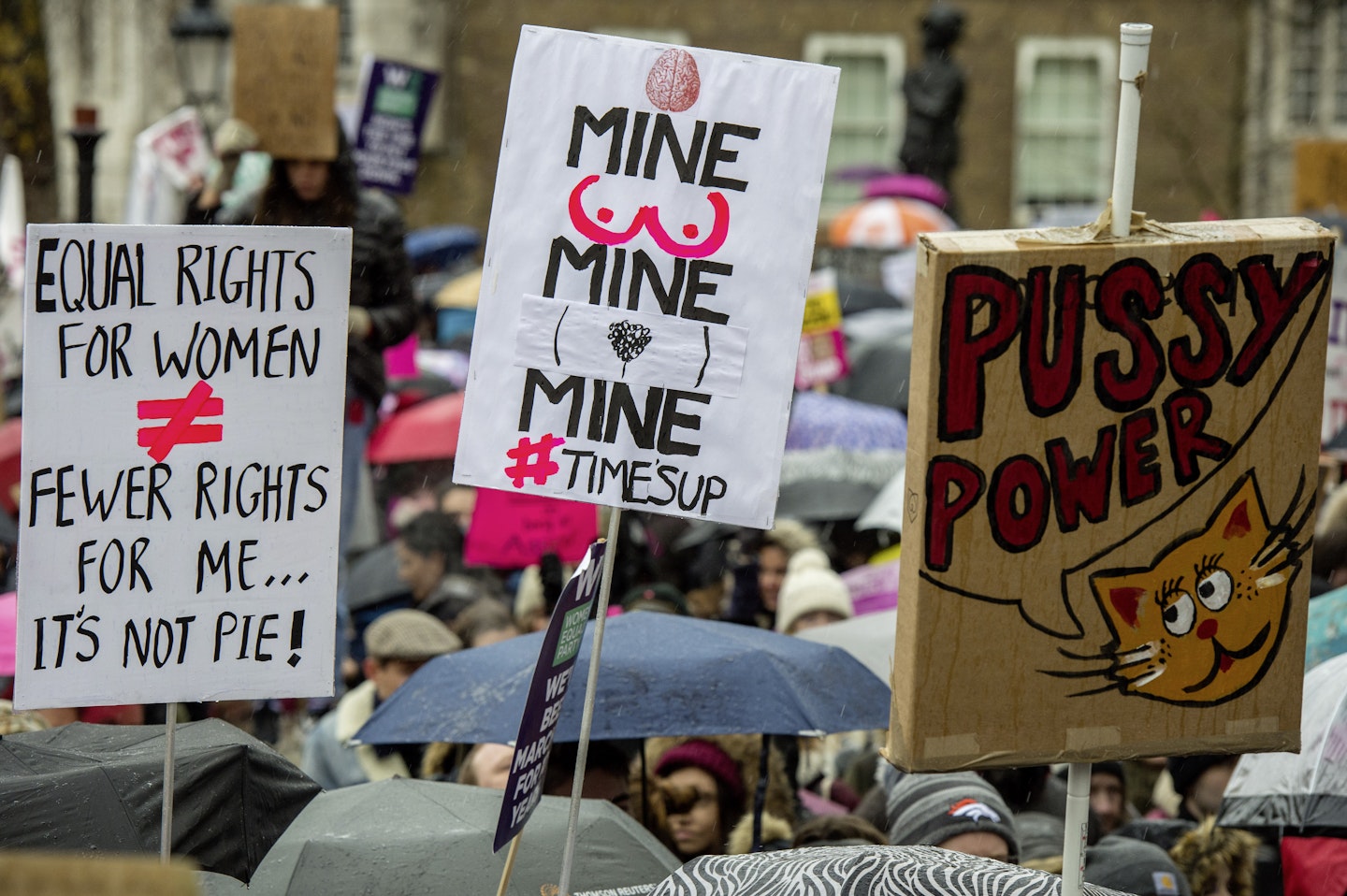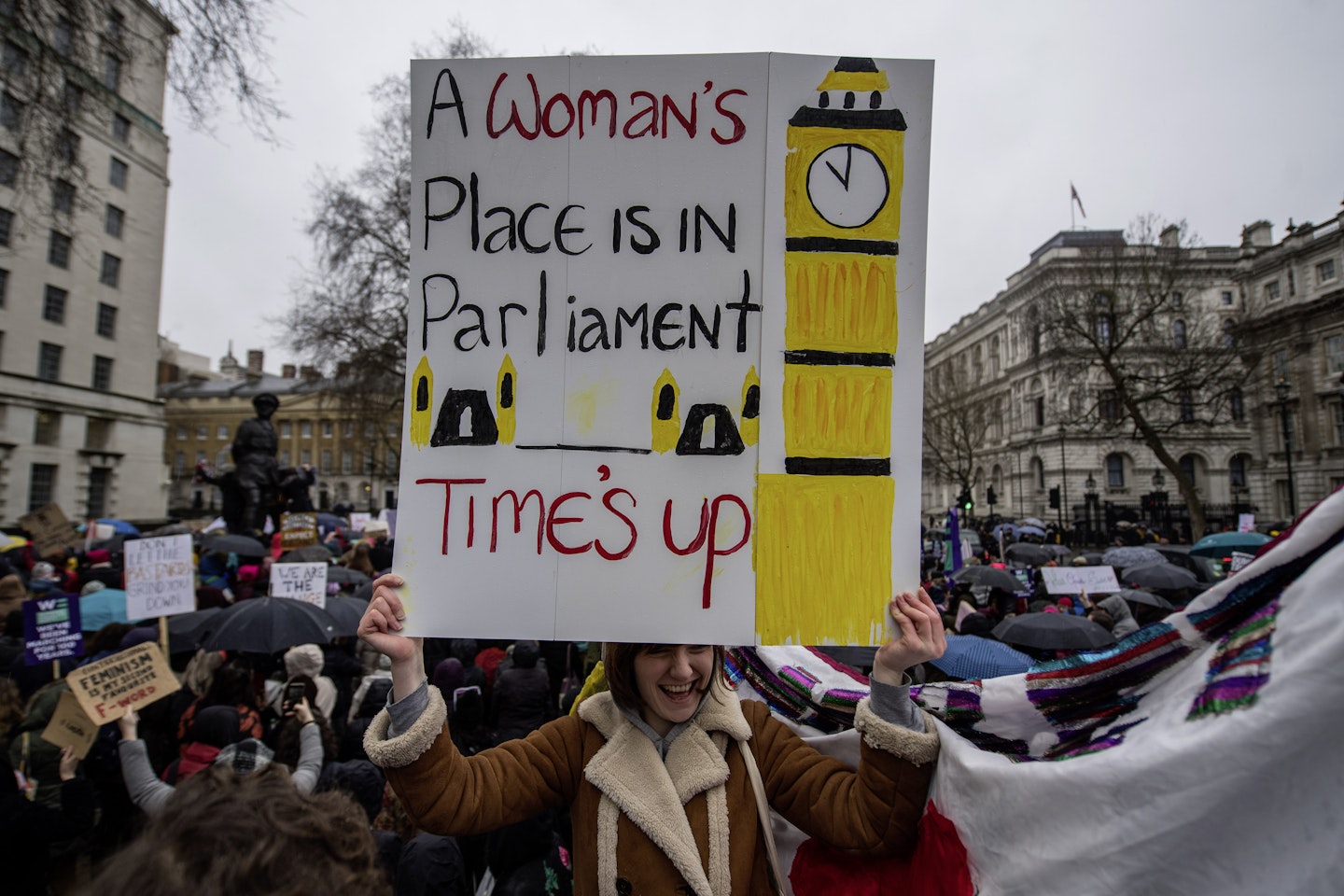A few weeks ago, I published a book. But seemingly it’s not the book some people wanted or even expected me to write. Me as a ‘serious political broadcaster’. You see, I have done the unthinkable. I have written an entire tome about menstruation; not Brexit. Indeed, when certain male MPs inquired as to what my book was about and I replied ‘periods’, some then kindly asked which period of time... My response? ‘The one in my pants.’ Conversations post that point were slightly stilted.
When pitching the book, I shall also never forget the male publisher who was so squeamish about my chosen topic that he referred to periods as ‘lady business’ throughout our entire meeting. (He insisted on seeing me despite loathing the idea, so hopeful was he of changing my mind and cajoling me into writing instead about the more ‘serious matters of the day’).
But it was at my first book event, in my hometown of Manchester, that the message was truly drummed home and left me seething, if not a little winded. Signing a book for a lovely woman, she asked me to dedicate it to her husband, who was apparently a big fan of my work. My other work, that is. He had been planning to attend the talk but when he found out what my book was on, he swiftly withdrew his attendance and asked his wife why I hadn’t written about something more ‘important’.

Another woman chimed in with this view, asking me to sign my book for her other half, who also didn’t attend despite enjoying my radio show, simply because periods ‘weren’t a serious issue’. Make no mistake – I wasn’t personally offended. People must use their free time as they see fit. But what I object to is the downgrading of the importance of menstruation as a topic. That you don’t get to do. Especially regarding something that has remained weirdly and stubbornly taboo, although without it none of us would be here today. And this always happens to subjects stereotypically marked ‘female’ or ‘wimmin’s issues’.
Football? Still dominated by men both on and off the pitch? Important. Spoken about in the most serious and solemnest of tones, as if life and death depended on it. The same goes for most professional sport – which has been, until recently, a male preserve. But fashion? Frivolous, fabulous and, crucially, female. Isn’t it? Despite being, like football, a multi-billion dollar industry. The only time we can talk about fashion with our Serious Hat on is when it concerns its green credentials. That’s because the environment and climate change are Serious Subjects.
From the serious to the sublime, women are being silenced without realising it.
I am also fascinated by what certain politicians and high-profile folk still think constitutes women’s interests. As a Woman’s Hour presenter and the former women’s editor of The Telegraph, I have a fair amount of experience in this area. For instance, when interviewing Jeremy Corbyn on Woman’s Hour in the run-up to the 2017 General Election, it was striking that his team had decided to come on and announce new childcare provisions. (The fact he didn’t know the cost of his own policy he was expressly appearing on the programme to announce led to a series of awkward moments between us.)
But I always found it more intriguing what his staff decided was the top priority for UK women: children. While affordable childcare provision is a huge societal problem and pressure – which affects men greatly too – whisper it, women also care about foreign policy, general taxation and the climate. I am sure that had Greta Thunberg been listening that morning, she would have been thoroughly bored by how much time we had to spend on costing childcare instead of hearing details of Mr Corbyn’s green agenda.
Female MPs also fall foul of thinking women can be distracted by our seemingly ‘frivolous’ interests. One of the most bizarre attempts at deflection during one of my interviews came from Claire Perry, the then Business Minister, who interrupted my questioning about the Government’s no-deal Brexit planning to compliment my lipstick. Bemused, I ignored her odd comment and went back to my difficult search for answers. Can you imagine if a man had tried that one?
Of course, we mustn’t overlook the fact that the majority of newspapers are still edited by men who decide the tone, treatment and amount of coverage subjects receive. It is their lens through which many still see the world and blind spots abound. Nor can we ignore how social media has changed the dial in helping women’s voices be taken seriously and listened to across traditional outlets. The #MeToo movement could not have become front-page news without the internet raising a din few couldn’t hear.

But the real harm caused by downgrading the importance of women’s issues? Shame. That feeling you can’t see but burrows deep into your soul. This sort of dismissive attitude can make women feel like speaking up about the minor through to the major issues in their lives isn’t worth it. That somehow we don’t deserve the microphone.
Personally, it took more than 20 years for me to be diagnosed with a serious but poorly recognised period illness called endometriosis. Doctor after doctor told me to soldier on with painkillers and that my pain was ‘normal’. It wasn’t. So I piped down, thinking I was overreacting (until a doctor friend helped me out of a major hole).
I am not saying men must feign interest in things that will probably never interest them, or women must either. But you don’t have to have equal interest to have equal respect for football and fashion. Instead, from the serious to the sublime, women are often being silenced without realising it, as we still live in a society that marks women’s issues as silly. This pernicious attitude sometimes stops us from having a laugh and a cry when we need it most. Or worse, makes us feel sheepish for speaking up at all, so we simply stop talking. It’s not on. Period.
Emma Barnett presents ‘Newsnight’ on BBC Two, ‘The Emma Barnett Show’ on BBC Radio 5 Live, and ‘Late Night Woman’s Hour’ on Radio 4. ‘Period.’ (£12.99, HQ) is her first book, out now.
READ MORE: Two Years On, Has Anything Really Changed For Women Since #MeToo?
READ MORE: Why We Need To Completely Change The Way Society Views Periods
READ MORE: Carrie Gracie: 'We Must Carry On The Fight For Equal Pay. It Isn't Won Yet'
